MercoPress. South Atlantic News Agency
Tag: US dollar
-
Friday, March 6th 2020 - 11:00 UTC
“If I mess up”, the US dollar could reach 5 Real, admits Brazil's minister Guedes

Brazil’s economy minister blamed the Real’s slide to an all-time low on the coronavirus outbreak and said the currency could weaken to as much as 5 per dollar if he “messes up.” Paulo Guedes said the Real is weakening largely due to the economic impact of the epidemic, rather than a change in the country’s risk perception.
-
Thursday, February 20th 2020 - 18:14 UTC
Brazilian currency again slips to a record low against the US dollar

Brazil’s real posted a record low close against the dollar for a second straight day on Wednesday, after earlier sliding to within less than one centavo of its weakest-ever level as the weight of selling pressure built up on several fronts.
-
Wednesday, November 20th 2019 - 09:55 UTC
Brazil's Real depreciating against the US dollar, but inflation remains below target

Brazil’s Real is sliding toward an all-time low against the U.S. dollar, but the central bank appears in no rush to intervene to slow or even reverse the fall. Despite the Real’s historical weakness, the market is functioning smoothly: depreciation, so far, has been fairly orderly, volatility is low, liquidity has not dried up, and the Real is not the only emerging market currency under pressure.
-
Tuesday, October 22nd 2019 - 12:12 UTC
How has the US-China trade war affected forex?
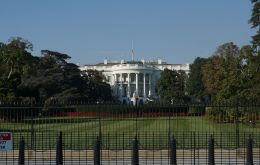
There are many factors that affect the value of currencies and influence the flow of foreign exchange, but few have a more significant impact than a trade war.
-
Wednesday, September 4th 2019 - 09:58 UTC
Signs of budding of financial stability in Argentina: Peso stronger and country risk falls
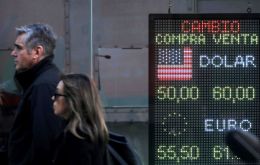
Argentina's peso surged on Tuesday, pumped up by Wall Street traders cheering President Mauricio Macri's capital controls that are aimed at protecting the beleaguered currency. The peso closed 5.39% higher at 55.98 per U.S. dollar, traders said, its strongest level in a week after a near-record low close on Friday.
-
Tuesday, May 14th 2019 - 09:45 UTC
Brazil's Real slides past 4.00 to the US dollar as China/US trade dispute escalates
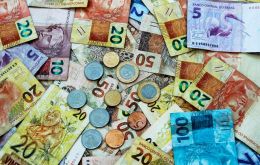
Brazil’s Real weakened past 4.00 per dollar for the first time in three weeks on Monday as an escalation in the U.S.-China trade war sent emerging markets reeling and a weekly snapshot of domestic growth forecasts fell to a new 2019 low.
-
Friday, March 8th 2019 - 08:58 UTC
Argentina's Peso hit a record low to the dollar weakening 4%
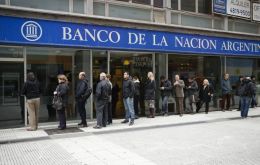
Argentina’s struggling currency hit a record low against the dollar on Thursday, weakening over 4% to close at 42.5 pesos per dollar, a challenge for President Mauricio Macri as he looks to right the economy ahead of elections in October.
-
Wednesday, October 17th 2018 - 01:24 UTC
US dollar falls for seventh time in a row against Argentine peso, but inflation still among five worst
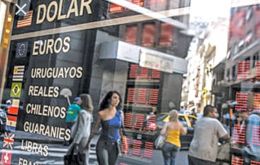
The US dollar fell Tuesday yet again, making it the seventh straight time the peso manages to recover due to the government's “cash-drought” measures. But that did not change the fact that According to the International Monetary Fund’s latest report, Argentina will have the fifth highest inflation rate in the world, which is expected to reach 41.5 by the end of the year..
-
Thursday, October 11th 2018 - 08:45 UTC
Macri administration reverses latest cooking gas price increase following public outrage

Argentina will pay for unforeseen increases in the cost of cooking gas following public outrage and opposition in Congress to stymie the plan which would have seen consumers paying increased gas prices in 24 installments from January 2019.
-
Tuesday, October 2nd 2018 - 08:21 UTC
Argentine Peso rises 4% after central bank sells seven-day notes paying 72%
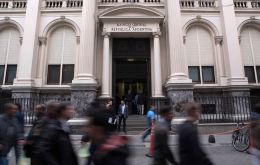
The he Argentine peso climbed more than 4% on Monday trading on the back of a debt sale by the central bank aimed at mopping up excess liquidity and signs that the International Monetary Fund (IMF) is solidly behind the administration of president Mauricio Macri.
